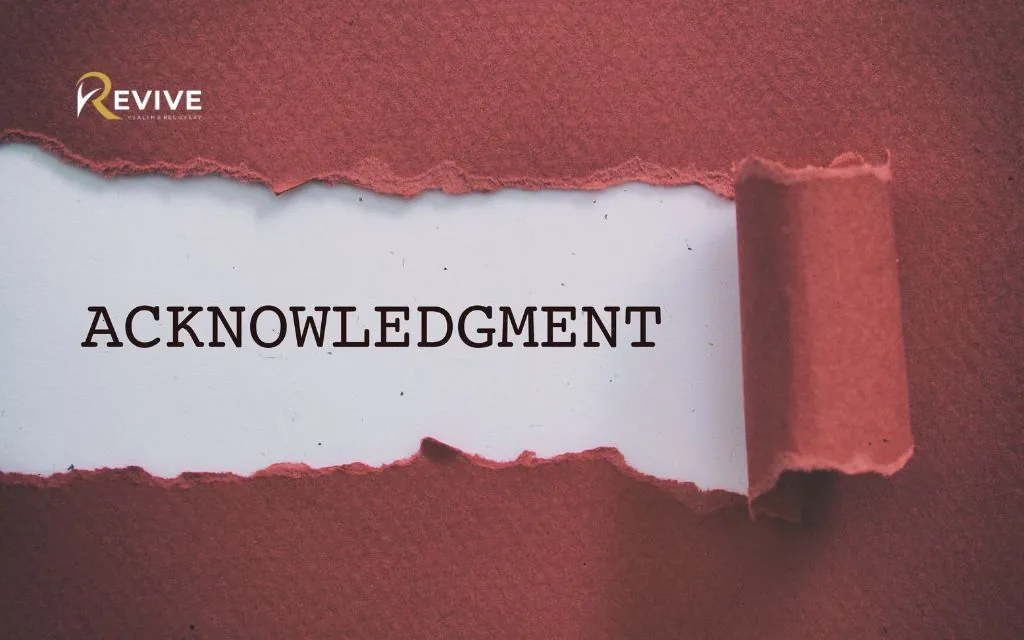Addiction recovery becomes more complex when mental health conditions exist alongside substance abuse. In Denver’s metro area, where 21% of residents report illicit drug use, understanding what are the 3 steps of overcoming addiction through a dual diagnosis approach can mean the difference between temporary sobriety and lasting wellness.
The three evidence-based steps to recovery include acknowledgment and safe detoxification, comprehensive therapy addressing both conditions, and long-term support systems. When you treat addiction and mental health together, your chances of sustainable recovery increase by 40-60% compared to addressing each condition separately.
The 3 steps of overcoming addiction: A comprehensive guide
Step 1: Acknowledgment and safe detoxification

What this step involves: Breaking through denial about both substance use and mental health symptoms requires honest self-assessment and professional guidance. This foundation step creates the groundwork for all future recovery efforts.
Key components:
Breaking through denial:
- Recognizing both addiction and mental health symptoms
- Family intervention support and strategies
- Professional assessment for accurate diagnosis
Medical detox process:
- Colorado altitude considerations for medication management
- Medication-assisted treatment (MAT) options
- Mental health stabilization during withdrawal
- 24/7 medical supervision for safety
Building your foundation:
- Setting realistic recovery expectations
- Creating initial support networks
- Preparing for comprehensive treatment phases
Step 2: Comprehensive therapy for mental health and addiction

What this step involves: Addressing both conditions through integrated therapeutic approaches that treat the whole person rather than isolated symptoms.
| Therapy Type | Primary Focus | Best For |
| Cognitive Behavioral Therapy (CBT) | Thought pattern recognition | Depression and anxiety with addiction |
| Dialectical Behavior Therapy (DBT) | Emotional regulation skills | Mood disorders and substance abuse |
| Trauma-informed care | Past trauma resolution | PTSD and addiction, especially first responders |
| Group therapy | Peer support and social skills | All dual diagnosis conditions |
| Motivational interviewing | Behavior change motivation | Early recovery stages |
Common co-occurring conditions treated:
- Depression and substance abuse cycles
- Anxiety disorders with self-medication patterns
- PTSD in first responders and trauma survivors
- Bipolar disorder requiring mood stabilization
- Personality disorders affecting relationships
Step 3: Long-term support and relapse prevention

What this step involves: Creating sustainable recovery systems that provide ongoing support for both addiction and mental health maintenance.
Essential components:
| Support Area | Services Included | Duration |
| Aftercare planning | Ongoing therapy, medication management | 12+ months |
| Sober living options | Structured housing with mental health support | 6-18 months |
| Peer support networks | Group meetings, recovery mentorship | Lifelong |
| Family therapy | Relationship repair, education | Ongoing as needed |
| Crisis intervention | 24/7 emergency support plans | Available always |
Relapse prevention strategies:
- Identifying triggers for both conditions
- Medication compliance support systems
- Stress management technique training
- Emergency action plan development
Understanding dual diagnosis in Denver’s recovery landscape
Colorado addiction statistics and trends
| Statistic | Denver/Colorado Data |
| Metro area illicit drug use | 21% of Denver-Aurora residents |
| National substance abuse ranking | Colorado ranks 9th nationally |
| Dual diagnosis prevalence | 50% of people with severe mental illness |
| First responder addiction rates | 25% higher than general population |
| Recovery success with integrated treatment | 40-60% improvement over single-focus treatment |
Why integrated treatment matters
Traditional addiction treatment often falls short when mental health conditions remain untreated. Dual diagnosis treatment Denver programs recognize that addiction and mental health conditions feed into each other, creating cycles that single-focus treatment cannot break.
Colorado’s unique challenges:
- High altitude affects medication metabolism during recovery
- Progressive substance policies create new treatment complexities
- Specialized protocols needed for elevation and medication management
- Growing need for innovative dual diagnosis approaches
Local Denver recovery resources: Specialized programs available
First responder programs:
Programs designed specifically for police officers, firefighters, and EMTs offer confidential treatment that protects careers while addressing trauma-related addiction patterns.
Community integration options:
- Denver recovery community resources
- Volunteer opportunities supporting recovery
- Educational and vocational rehabilitation programs
- Housing and employment assistance
FAQs about what are the 3 steps of overcoming addiction
How long does dual diagnosis treatment typically take in Denver?
Treatment duration varies based on individual needs, typically ranging from several months to over a year. Insurance coverage and program intensity affect timelines. Contact Revive Health Recovery at (303) 268-4655 for personalized assessment and coverage verification.
What makes dual diagnosis different from regular addiction treatment?
Dual diagnosis treatment addresses both addiction and mental health conditions simultaneously using integrated approaches. Specialized staff trained in both areas provide comprehensive care that treats the whole person rather than isolated symptoms.
Are there dual diagnosis programs specifically for first responders in Colorado?
Yes, specialized programs exist that understand law enforcement and emergency service stressors. These confidential programs protect careers while addressing trauma-related addiction patterns common among first responders.
How do I know if I need dual diagnosis treatment versus addiction treatment alone?
Professional assessment determines appropriate treatment levels. Warning signs include persistent mood symptoms during sobriety, difficulty maintaining relationships, or symptoms that existed before substance use began.
What insurance options cover dual diagnosis treatment in Denver?
Colorado Medicaid, private insurance plans, and financial assistance programs often cover dual diagnosis care. Coverage varies by provider and program type. Revive Health Recovery assists with insurance verification and financial planning.
Why choose Revive Health Recovery for your dual diagnosis journey
Comprehensive outpatient dual diagnosis care
Revive Health Recovery specializes in treating both addiction and mental health conditions through evidence-based approaches tailored to each individual’s unique needs. Our team understands that lasting recovery requires addressing all aspects of wellness, not just substance use.
Our personalized treatment planning process begins with comprehensive assessment to identify specific needs and goals. We design treatment approaches that fit your lifestyle while providing intensive support during recovery’s challenging phases.
Evidence-based therapeutic approaches include CBT, DBT, motivational interviewing, and trauma-focused treatments proven effective for dual diagnosis recovery. Our flexible scheduling accommodates working professionals and family responsibilities while maintaining treatment intensity.
Denver-focused treatment approach
Understanding local challenges and resources allows us to connect clients with community supports that enhance recovery. We recognize Denver’s unique stressors and opportunities, incorporating them into comprehensive treatment planning.
Community integration emphasis helps individuals rebuild meaningful lives within Denver’s recovery community. We facilitate connections with local resources, volunteer opportunities, and peer support networks that strengthen long-term recovery.
Our family-centered care model recognizes that addiction and mental health conditions affect entire family systems. We provide education, support, and therapy services that help families heal together while supporting individual recovery goals.
Your path forward starts today
Free comprehensive assessment provides clarity about treatment needs without financial barriers. Our experienced clinicians evaluate both addiction and mental health symptoms to recommend appropriate care levels and approaches.
Insurance verification assistance removes barriers to accessing needed care. Our staff works with insurance providers to maximize coverage benefits while explaining any out-of-pocket costs before treatment begins.
Same-day appointment availability ensures that motivation for recovery receives immediate support. We understand that readiness for change can be temporary, so we eliminate waiting periods that might prevent individuals from accessing care.
Our 24/7 crisis support provides safety nets during difficult recovery periods. Mental health and addiction crises do not follow business hours, so our support remains available when individuals need help most.
Conclusion
Recovery from addiction becomes achievable when mental health receives equal attention through integrated dual diagnosis treatment. The three essential steps of acknowledgment and detox, comprehensive therapy, and long-term support create foundations for lasting wellness when both conditions receive professional care.
Denver residents have access to specialized dual diagnosis programs that understand our community’s unique challenges and resources. With proper support, dual diagnosis recovery success rates increase significantly, offering hope for individuals and families affected by co-occurring disorders.
Revive Health Recovery commits to treating the whole person through comprehensive outpatient care that fits your life while providing intensive support during recovery’s challenging phases. Our dual diagnosis specialists understand that lasting recovery requires addressing both addiction and mental health together.
Ready to take the first step toward lasting recovery? Contact Revive Health Recovery today for your free confidential assessment. Our dual diagnosis specialists are available 24/7 to help you begin your journey to wellness.
Phone: (303) 268-4655 (Available 24/7)
Email: contact@revivehealthrecovery.com
Address: 1427 S Federal Blvd, Denver, CO 80219
Our Denver outpatient treatment model provides flexibility while delivering comprehensive dual diagnosis care designed specifically for Denver residents ready to reclaim their lives from addiction and mental health challenges.



